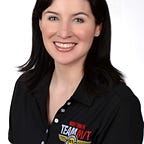How Did You Get Here?
Have you ever looked around and wondered how you got where you are? Reflecting on your life are you satisfied? Or maybe you wish you were in a different place or had made different decisions?
Using business research, Clayton Christensen’s new book “How Will You Measure Your Life?” applies management research to the common questions we all ask:
Among these:
- Should I take that job?
- How do I raise well adjusted, independent kids?
- How do I stay out of jail? Or How do I live a life of integrity?
Does Christensen’s new book sound like a self-help book? Yup. But it isn’t a typical self-help book. You won’t find worksheets or quizzes in the book. Instead you will find a thoughtful book about making deliberate choices in your career and your life.
Each chapter starts out with a business case and then discusses this application in your personal life. One example is Chapter 7 where Christensen starts out discussing Dell’s gradual outsourcing of all computer manufacturing to an outsourcing provider (ASUS at the time). Outsourcing made the bottom line look great but over time Dell’s consumer computer business slid into mediocrity and there was nothing to distinguish a Dell computer from its competitors.
Christensen applies this cautionary tale to the many coaches/tutors/etc; that parents hire to help their kids. He advises us to look at what we are really teaching our families when we outsource everything. We may think that by freeing our kids from mundane household chores we have opened up time for them to focus on more important things. But, Christensen cautions we’ve given up precious opportunities to teach our own children, instead leaving important guidance to be provided by a stranger.
Definitely a different way to think about the army of people that teach kids how to golf, ace the SAT’s, and learn Chinese.
Christensen tackles a number of other interesting topics in the same manner. Section three on staying out of jail is the shortest but perhaps one of the most impactful. There are two quotes from this chapter that underscore a central theme:
- “The safest road to Hell is the gradual one- the gentle slope, soft underfoot, without sudden turnings, without milestones, without sign posts.” — CS Lewis
- “…it’s easier to hold to your principles 100 percent of the time than it is to hold to them 98% of the time.”
These quotes exemplify the simplest way to “stay out of jail” — define your personal boundaries and stick to them. Using examples from the world of business Christensen discusses the ease with which we toss aside our convictions “just this once” and end up making small choices on the way to our own version of Hell.
Although some reviewers have noted that Christensen’s book is geared more towards recent graduates I would highly recommend the book regardless of the stage you are at in your career. For those further down the career path there are many parts of the book that will help you understand where you are and think critically about where you want to be and how to get there.
Originally published at HR reMix.
